Thank you to our show sponsor, The Index Standard!
Fixed Index Annuities and RILAs are getting more complex and technical just when fiduciary rules are getting stricter. How do you choose the right index and allocate to them? The Index Standard is your answer. They are an independent provider ratings and forecasts on all indices and ETFs used in the US insurance space. Their process is systematic and unbiased, identifying robust and well-designed indices. We all know finance is complex and The Index Standard has a clear ratings system and uses approachable language to demystify this complexity. Visit theindexstandard.com for more information.
Watch
Listen
Receive Updates
Show Sponsors
The discussion is not meant to provide any legal, tax, or investment advice with respect to the purchase of an insurance product. A comprehensive evaluation of a consumer’s needs and financial situation should always occur in order to help determine if an insurance product may be appropriate for each unique situation.
EPISODE TRANSCRIPTION:
Paul Tyler:
How can we create more happy retirement planning clients? Tom Hegna joins our show today to share his insights on how to make this happen in your practice. Also, do you want to get regular updates on news from Tom and other guests of our show? Go to thatannuityshow.com and subscribe to our newsletter. We hope you enjoy the show.
Ramsey Smith:
SE2, an Eldridge business, is a leader in the U.S. life and annuities, insurance technology and services industry. SE2 uniquely combines the maturity and peerless industry knowledge of its 125 plus years of life insurance industry heritage, with its end to end digital platform to enable the rapid launch of new and innovative products, through existing, as well as digital channels.
Ramsey Smith:
They also happen to be great partners of Nassau Financial Group, the anchor sponsor for That Annuity Show. SE2 is helping them transform their company for the next generation of service.
Paul Tyler:
We’d also like to thank our sponsor CUNA Mutual Group. Built on the principle of people helping people. CUNA Mutual Group is a financially strong insurance, investment, and financial services company that believes a brighter financial future should be accessible to everyone.
Paul Tyler:
Through its company, culture, community engagement, and products and solutions, the company works to create a more equitable financial system that helps to improve the lives of those they serve in our society. They’ve also been great collaborators on this show, for more information, visit cmannuities.com.
Ramsey Smith:
Today’s show is sponsored by our friends at the Index Standard. As many of you who listen to our show, certainly know fixed index annuities and RILAs are getting more complex and technical, just when fiduciary rules are getting stricter. So how do you choose the right indexes and allocations?
Ramsey Smith:
You should consider the Index Standard. They’re an independent provider of ratings and forecasts on all indices and ETFs used in the U.S. insurance space. Their process is designed to be systematic and unbiased, with the goal of identifying robust and well designed indices. We all know finance is complex. The Index Standard has a clear rating system and users approachable language to demystify this complexity. Visit theindexstandard.com for more information.
Paul Tyler:
Finally, we want to thank our primary sponsor, and my employer by day, Nassau Financial Group. Our tagline is working harder to be your carrier of choice, we support you with best in class service, we seek to keep things simple and we’ll have your back in the years to come. We’re headquartered in Hartford, Connecticut with 27 billion in assets and over a half a million policy holders. We’ve been doing this a long time, 170 years, but we remain humble enough to always try to improve.
Intro:
Welcome to That Annuity Show, the podcast that will make you an expert in explaining annuities to your clients. Give us 30 minutes each week and we’ll shave hours from your client presentations. Now here’s your host, Paul Tyler.
Paul Tyler:
Hi, this is Paul Tyler and welcome to another episode of That Annuity Show. Ramsey, how are you?
Ramsey Smith:
Fantastic. Always glad to be here.
Paul Tyler:
Good to be here. Yeah, I know. You’ve had some interesting discussions and stuff we’ve talked about over the last couple weeks here and I’m sure you’ll weave some of these themes into conversation. Today, we don’t have Will. We don’t have Mark, unfortunately, because it is a shame, we’ve got a great guest. If you’re listening to us and you’ve been in the business, I think you’d have to be under a rock, maybe there are five people who are listening, who don’t know or have read or listened or seen our guest, Mr. Tom Hegna.
Paul Tyler:
Tom, thanks so much for spending time with you. You’ve written an enormous amount of great books. I see them on everybody’s shelves. I’ve heard you speak on video and webinars. I have not had the great fortune to hear you in person. You worked at New York Life for a number of years. I know people, New York Life who worked with you and some people at one of my former companies who have had relationships. I know you did a lot of seminars, you’re a Lieutenant Colonel, thanks for your service and welcome to our show.
Tom Hegna:
Thanks, Paul and Ramsey. Great to be with you both.
Paul Tyler:
Yeah, well, I’ll start off with a question and really it’s almost the prerequisite, Tom, which is, for people who may not be familiar with your… I guess it’s probably not your first book, maybe you can tell us a little bit of the backstory Paychecks and Playchecks. Can you just explain the concept that you’ve just been so effective in delivering to our industry and to consumers over the years?
Tom Hegna:
Yeah, so, I spent eight years with MetLife. I spent 15 years with New York Life. I retired from New York Life in 2011 and I went out and I wrote my first book Paychecks and Playchecks. And that was really the title of my million dollar round table main platform talk that I spoke.
Tom Hegna:
I spoke Top of the Table in 2009 and I spoke Main Platform on in 2010. And the name of that talk was Paychecks and Playchecks. And it’s just a simple way to explain to people that when they retire, they should make sure that their paycheck is covered with guaranteed lifetime income. So their housing, their food, their clothing, their internet, their cell phone, all their basic living expenses should be covered with guaranteed lifetime income.
Tom Hegna:
Now that’s not what I say. That’s what all the PhDs who study retirement say the Dr. David Babbel of Wharton, Dr. Mosvoleski of Toronto, Dr. Manak Yari, Dr. Michael Finka, Dr. Wade Pfau, Dr. Robert C Merton, Nobel prize winners. So what I did was I took all these white papers of PhDs that the average person does not read. And I put them into English in a way that people can understand it, that your paycheck needs to be covered with guaranteed income. And then your playcheck, that’s your travel, your cruises, your fun stuff. That can be in the stock market, real estate and all these other investments. And it’s just really a simple way of trying to explain to people how they should just manage at a high level, their finances in retirement.
Ramsey Smith:
I totally agree, and I think that is a framework. That one, it manifests itself a number of different places. Some folks call it bucketing and there’s lots of different ways it’s expressed, but I think it is a very, very important principle. The trick that the challenge that we all face in this industry is getting people to that conversation, getting people to the place where they will actually engage in that particular discussion. And so I’m very curious to hear how you get people to that point, how you get people pass reacting to the word annuity instead of focusing on the value proposition.
Tom Hegna:
So I try to play a role in that because I don’t sell any financial products. So I don’t sell annuities. I tell people right up front of my seminars, “I don’t sell any financial products. I don’t get compensated on the sale of any financial products. What I’m going to share with you is the math and science behind a successful retirement.” And I think what advisors need to do is use disinterested third party references, because look, when you’re an advisor and you’re talking annuities they say, “Well, okay, you make a commission, you make money.” You got to say, “Well, let me give you some research of people who don’t make any money on annuities, okay? Let me share with you. And you can use paychecks and playchecks. You can use, don’t worry, retire happy. You can use white papers at Dr. David Babler, Moshe Milevsky or Michael Finke, Wade Pfau.
Tom Hegna:
And then protectedincome.org, is another great organization. People say, “Why aren’t there any positive articles on annuities?” They got a ton of them and they went and they put it through the FCC. So they’ve got those FINRA statements, the FINRA letters, so that people can actually use this stuff. And so I would say use disinterested third party references. My stuff is good. The PhD stuff is good and protectedincome.org.
Paul Tyler:
Interesting. Well, I’m kind of fascinated in the backstory of paychecks and playchecks, right? Because you’ve been this industry a long time, I think back, early two thousands. When I got involved in the variable industry… Annuity space. What’s the value of an annuity. What stuck with me was, Paul, when you get closer to retirement, you can take some of those chips off the table. Protect them over here. Now they’re safe. The market starts to go up and down as you get closer retirement, there’s some safety, now. I would almost say people have a little bit of market downturn blindness today. It’s shocking. People say, oh, market went down. I’m going to buy more. Why? Because it worked, until it doesn’t. You took a tact though, that said, “don’t focus on the worry, focus on, what you already created, a paycheck for yourself, a payment, and this is what the annuity can do for you”. How did you get there?
Tom Hegna:
Well, New York life was a big seller of variable annuities, and I was an annuity wholesaler. And eventually I ran all the wholesalers. I became their national guy, but so we sold billions of variable annuities and New York life had a cash value guarantee. So not an income benefit, not a withdrawal, but if you put in a 100 000 your guaranteed, not to have less than your 100 000 over a 10 year period of time, and you could… Anytime the market went up each year, you could raise that. So, I mean, that was an incredible feature. And I remember people saying, oh, the fees are too high at the time. It was 25 basis points to have that guarantee. Now, where can you get guarantee that you’re not going to lose any money in the market for 25 base points?
Tom Hegna:
Now, I think it’s maybe 65, 95. I mean, they’ve had to raise it, but people were saying the fees were too high. And I was saying, no, this is the best deal in the world that you can invest in the market. If the market goes up, you get that. But if the market goes down, you don’t lose. And by the way, I use that, because at the time you were able to put all your money into any fund you want. I put it into emerging markets and I put it all in there. And my money, tripled in a period of like 12 or 18 months, I locked that in. And then of course, when the market crashed 10 years later, I got that, tripling of my value. There’s nowhere I could have put my money that would’ve done better over that 10 year period of time.
Tom Hegna:
And yes, I took a lot of risk, but I had a protection, so I could take more risk. And that’s, if people learned to use annuities to their advantage and take as much risk as you can, if you got a downside risk protection, that type of thing. And now in the fixed index annuity, there are uncap strategies. There were fixed index annuities that were up double digits, 12, 14, 18. I heard 20, I never saw, but I heard there was some over… Indexes up over 20% with no downside risk. I mean people should be looking at this and if nothing else not to replace their stocks, but to replace their bonds. You know, Roger Ibbotson did that whole white papers and a PhD on a person with a 60% stock, 40% bond portfolio versus person who had 60% stock, 40% index annuity portfolio.
Tom Hegna:
And he found the second portfolio outperform the first portfolio for the last 40 years and is likely to do so for the next 40 years. So even if people just move their bond portfolio into annuities, their portfolio’s likely going to do better. They’re going to be more relaxed. They’re not going to have as much stress and it’ll be better for their retirement.
Ramsey Smith:
So I think that’s a critical thing there. Is just that… This idea that… what are you replacing with an annuity? And we often get to these conversations where it’s a discussion versus stocks, which it shouldn’t be. Sometimes it’s a function of… maybe you’re having a discussion with a financial advisor who is particularly dedicated to stocks in a portfolio, which is totally fine. But I guess my question there is again. How do we get past that? How do we get people focusing on the right sort of comparables and in particular with financial advisors. So I’d love to find out how your conversations with financial advisors flush out versus the ones you have with insurance agents, for example.
Tom Hegna:
Well, what’s kind of interesting is there are a lot of people out there who claim they’re fiduciaries. They always do what’s best for the client. And yet they don’t use annuities. And I say, well, you can’t be a fiduciary and not use annuities. And they go, “well, I don’t do commission products”. And I say, well, commissions have nothing to do with it. I can show you many cases where a commission product will be a much better deal for the client than paying an annual fee forever. I call them forever fees. Now I’m not against fees and I’m not against commissions. But what I’m saying is people need to do what’s best for the client and the same people who are complaining that agents make commissions. They’re the ones who aren’t using annuities, because they don’t want their assets under management to go down.
Tom Hegna:
And so what I’ve got to do with these financial planner, fiduciary types, who don’t like annuities is… I just challenge them. I say, if you think I’m wrong, then prove me wrong. I haven’t been proved wrong in 30 years, but maybe you can do it. I’ll you call in Susie Orman, Ken Fisher and Dave Ramsey to help you if you need it. But all you got to do is build a portfolio. You think I cannot beat. Yeah. Put all your good stocks in there. Yeah, you do that. You know what I’m going to do? I’m going to reach into portfolio. I’m going to remove some of your bonds. I’m going to replace it with some guaranteed lifetime income from an annuity. Do you know what that will do to every single one of your portfolios, every single one of them. It’ll lower the risk and increase returns. And if, I’m wrong, you should be able to prove me wrong just like that.
Tom Hegna:
But nobody can. And here’s why. Inside of the portfolio, the way that, that income annuity functions, it functions like a AAA rated bond because it’s guaranteed every single month, as long as that per person is breathing, that check is coming with a CCC rated yield. The payout rate is much higher than what you can get in a money market fund or a CD or bond with zero standard deviation. It never fluctuates. So all of the annuity haters out there, they would all love to have a AAA rated bond with a CCC rated yield with zero standard deviation. And that’s how I penetrate that market. And what’s so interesting is when I’m… Let’s say I’m in front of a thousand annuity haters. Attorneys, accountants, CFPs or whatever, that don’t believe in annuities. By one hour into my presentation, I can convert 85 to 90% of them to say, whoa, I just learned something about annuities I didn’t know before.
Tom Hegna:
The other 10%, you know what they do, they attack me personally. They don’t go after what I’m saying. They don’t argue with what I’m saying. They attack me. Oh, you’re just a shield for the insurance companies. Oh, you were in the insurance business. You are a retired executive. You have an agenda. I don’t have an agenda. I just want people to retire, happy and successful. And you can’t do it as well if you don’t have an annuity. And that’s a fact, it’s not an opinion that’s a mathematical scientific and economic fact.
Paul Tyler:
Yeah. Well, as an attorney never practiced, three rules I remember, Tom, was first argue the facts, then argue the law and then just argue.
Tom Hegna:
Right.
Paul Tyler:
That’s interesting. It’s… I think we are seeing breakthroughs in annuities. Clearly in some of these other sectors. RILAs I would say is… Tom. I mean, if we were to point to qualitative, quantitative success… Right? I’d point to RILAs, is that right…
Tom Hegna:
Well, yeah. Let me think about it. They hit on variable annuities. Their fees are too high. Well, you got RILAs out there that have no effect… that don’t have any effective fees and that’s very powerful. Now you don’t get a hundred percent protection, but you can get 10 or 15 or 20%, which will take out 85, 90% of all the market crashes that are out there. And you can either have a buffer. You can have a floor buffer. You get your choice. It’s a very flexible product and I think for a lot of people, it makes a lot of sense.
Tom Hegna:
It’s almost like a variable annuity on training wheels, if you think about it. For the fiduciaries who don’t like annuities, because the fees are too high. Well, it’s a training wheel product for them. I think it helps get them into the annuity space because they can see, okay, well I can see where I can take some protection here and have this upside here. It makes sense. Especially when you don’t compare it to stocks, compare it to bonds, compare it to some other things. And I think it makes a lot of sense for a lot of people.
Ramsey Smith:
Well, yeah. I thought when you said before, when you… We challenge people to put whatever stocks they want in, because you weren’t going to touch the stocks.
Tom Hegna:
I know. I don’t care about the stocks.
Ramsey Smith:
You didn’t focus them at all. Yeah.
Tom Hegna:
Because the average person should not have all their money in annuities. And I think that’s… some advisors are out there every… If all you got is a hammer, everything looks like a nail and they just sell their annuities, sell their annuities. No, we need to be more holistic. We need to do what’s best for the person. But the average person is going to have 20 to 40% in their portfolio in annuities, not a 100%.
Ramsey Smith:
Yeah.
Tom Hegna:
20 to 40. Now I’m going to have more than that because I don’t want to just have guaranteed paychecks. I want to have guaranteed playchecks. So I own 11 annuities. I don’t sell them I don’t care if people buy them but the research shows you should.
Ramsey Smith:
Yeah.
Paul Tyler:
Okay. What one word in question Tom inflation. How worried should I be?
Tom Hegna:
It’s step four in my don’t worry, retire, happy book. Protect yourself against inflation. I think you’ll always have to protect against inflation, but I may see the world a little different. I mean, I look at the 30 year U.S. Government bond. That is my crystal ball on interest rates and inflation. And the 30 year government bond is still under 2%. The bond market sees no inflation. The bond market still sees deflation and there’s still what? 14, 15, 16 Trillion Dollars of government bonds around the worlds paying negative interest rates. The world is still facing deflation. All right. Now oil price are up. Gas prices up lumber price are up. Copper price are up. I mean, we’re all see in the price are going up. I mean, you can’t, you go to, McDonald’s now used to buy something at McDonald’s for like six bucks.
Tom Hegna:
You can’t get out of there for 12 or 13 bucks. I mean, for one person it’s ridiculous. Taco Bell, they used to have three tacos for 99 cents. Now they’re like 9.99 a piece and there’s no meat in them. I can’t go there anymore. They don’t put any meat in their tacos. I mean, so obviously prices are going up, but what I’m telling you is economically the bond market does not see it. They say, okay, there’s a lot of funny money. It’s making things go up. But once the funny money ends, look out below, this thing could crash at some point. I don’t know when I’m not saying it’s imminent, but I mean you can’t have 28 trillion dollars of debt climbing at 3 to 4 billion. They’re talking about spending another 3, 4 trillion. And we have 200 trillion of unfunded obligations for social security, Medicare, Medicaid, government pensions, military pensions. Some day somebody’s got to pay the Piper.
Ramsey Smith:
So I’m going to, I’m going to dial back to one thing you were talking about earlier, which is the AAA credit, you called it, versus the CCC yield. At the end of the day… First of all, obviously everybody, all three of us believe very strongly in the credit worthiness of the life insurance industry, generally, and life insurers individually. And I think our track record supports that, but it is a challenge that you will get… So if you were talking to a financial advisor and you talk about it being sort of AAA, they will say, well, ultimately it’s the claims paying ability of the carrier. So how do you address that conversation.
Tom Hegna:
That’s true.
Ramsey Smith:
And different carriers, why they should go with a lower rated carrier versus a higher rated carrier.
Tom Hegna:
And I’m very clear in my book, all insurance companies are not the same, and I do encourage advisors to work with higher rated carriers. Now I let them determine whether that’s a B plus or an A minus or an A plus. I leave that up to them because the case can be argued against me. And it has many times. That look, Tom, “it doesn’t matter what the insurance company rating is. Nobody’s ever not gotten paid their income annuity because income annuity, reserve requirements are so high. So you should really go with the lowest carrier to get the highest payout”. I don’t subscribe to that, but there are people that do. I say the past is not the future. And just because things happened some way in the past doesn’t mean they would necessarily will happen that way in the future. And for me, I stick with higher rated carriers. I mean, I always worked for AAA Mutual Life Insurance company, Metlife. When I was there it was AAA mutual. Then they de-mutualized. New York life was AAA Mutual. So that’s my own natural bias, is to stick with higher rated of carriers. But I work with carriers of all ratings out there. And I let the advisors really determine which annuity is best for the client. I don’t get into picking products or picking companies.
Paul Tyler:
Yeah. So just to, also fall back on your comment about rising prices, now, it’d be great if my Taco Bell… Taco Does go down, right? Let’s see. I don’t think my taxes are going to go down. I don’t think fuel costs… Oh, who knows? Maybe I… A lot of expenses, I can see Tom, either flat or going higher, what should I be doing, or what should I be telling my clients.
Tom Hegna:
So you’ve got to help your clients plan for inflation, regardless of whether we’re in deflation inflation, they’ve got to have increasing income. We can’t just give them income. We got to give them increasing income for the rest of their lives. There’s really three ways to do it. Number one, you can buy annuities where the paycheck goes up by 3 or 4 or 5% every year. SPIAs do that. Some DIAs do that. Some type of inflation protection. You can do what I’ve done. I bought an annuity that kicks in when I turn 60, I bought another one that kicks in when I turn 62, I bought another one that kicks in when I turn 65, I bought another one that kicks in when I turn age 70.
Tom Hegna:
So I’m guaranteed of that increasing income, or you can cover those basic living expenses and retirement with a guaranteed lifetime income, and then invest the rest of your money in things like stocks and real estate, things that typically go up in times of inflation. So if we get inflation, the portfolio goes up, there’s more money to take out more money, but we’ve got to give them a way to have a increasing income for the rest of their lives.
Ramsey Smith:
So I like that. So it’s essentially laddering, you buy say a SPIA at first, then you buy a series of DIAs further out so that you have additional layers coming in, down the road.
Tom Hegna:
Yeah. And I mean, you don’t have to even use a SPIA or DIA. You could buy different annuities, fixed index bearer and then just kick them in at different times. But I bought a bunch of DIAs for my income. I also own some index [inaudible 00:22:56] I also own some variable Annuities. So I’m pretty well diversified across the annuity space, but each of them function a little differently for me.
Ramsey Smith:
Okay. Well, that’s interesting, Tom. So the choices that you made, what were the… We don’t need to know carrier names, but the ones you did choose. What distinguished the specific choices you made?
Tom Hegna:
So I own three variable annuities. Now those are the ones with the high fees, the bad ones that people don’t like, why would I do that? Well, I’ve announced that I’m retiring. Okay. So I’m not just talking the talk and walking in the walk. I have enough money, now to retire for the rest of my life. So I always asked people if I have enough money to retire for the rest of my life, what would be the stupidest thing I could do? Lose my money that would be the stupidest thing. Can you imagine? I work? I save, I invest. I do everything right for 60 years. And then I retire and the market takes a dump. It stays down for 15 or 20 years. See people don’t realize the European stock market has been down for over 20 years. The Japanese stock market has been down for over 30 years.
Tom Hegna:
What would happen to me if I retired and my money was in the market, market crashes, stays down for 15 or 20 years. That would be the stupidest thing I could do. So what I tell people is, I say, “I don’t think I’m any different than any of you. You know what I want to do”. I want to make as much as I can make. If I can make 10%, 20%, 30%, I want to make as much as I can make, but just as important. No, for me more important, I don’t want to lose what I’ve already got. Well, Vanguard can’t do that for me, Fidelity can’t do that for me, Ken Fisher can’t do that for me. That’s what a variable annuity can do for me. And by the way, there were hundreds of variable annuity and variable life sub counts. Last year, there were up over 20 and 30 per percent after fees.
Tom Hegna:
So if I can make 20 or 30% after fees and then be guaranteed that if the market crashes, I don’t lose all my money because I either have an income benefit guarantee or withdrawal benefit guarantee or a cash value guarantee that matters to me. And then I own three fixed index annuities. Why? Because, that study of Roger Ibbotson. If you just move your bond portfolio to fixed index annuity, your risk is going to go down. Your returns are going to go up.
Tom Hegna:
And then I own multiple income annuities. Why? Because retirement’s all about income. I want to be able to play golf and tennis and pickelball and go on cruises, regardless of what the market’s doing, regardless of what interest rate’s doing, regardless of who’s in the White House, regardless who’s in Congress. And that’s what that income allows me to do. And what many people don’t realize is I have converted many of my IRAs and 401(K)s to Roth, they’re in income annuities. So I get tax free income for the rest of my life. And I think tax free income is going to be very important because taxes are going to have to go up. It’s not a Republican or a Democrat issue. It’s a math problem. We need a Math Party, quite frankly.
Paul Tyler:
We do. And it’s shocking how many people don’t understand math, Tom. So tell me, it sounds like you are prepared to live, be happy in retirement. Tell us about being happy and what Alliance…
Tom Hegna:
Yes. So look, I took a trial retirement two summers ago. I wanted to see, could I really do it? I mean, I spent 200 days a year on the road for 30 years. Could I actually retire? Would I drive my wife crazy? I loved it? So I retired the next summer as well. And now I’m kind of entering into full-time retirement. I’m not going to… I’m still going to do webinars and stuff, but I’m not going to do 200 days a year on the road. I am not going to do that anymore. Okay. Now I’m worried. I really worked on my golf game. I won the club championship at my country club. I’m the oldest club champion, in course history. I mean, it was an incredible… And I put that as one of my life events, as high as speaking main platform at MDRT.
Tom Hegna:
And so that’s now my new goals. I’m playing tennis, I’m playing golf, I’m doing all these things that I want to do. And that takes the priority on my calendar. And then I have to fill in my webinars around my golf game and my tennis schedule and that. And so now I’m in control rather than the world being in control of my life. And that’s what retirement’s all about. It’s really about freedom. It’s about being able to do what you want to do when you want to do it. And Dr. Michael Finka and Wade Pfau, they’ve done a lot of research and people of this guaranteed income, coming in, they spend more money and spending money is the key to success of retirement. It’s the dinners out. It’s the bottles wine with your friends.
Tom Hegna:
It’s the cruises. It’s the travel. That’s how you enjoy your retirement. See too many people have millions of dollars stashed in some accounts somewhere, but they don’t touch it. They won’t touch it. Oh, I’m not touching it. Not touching it, not touching. I say, wait a minute, you told me where you were going to join the country club. You’re going to buy new boats. You’re going to see the world. Have you done that yet? Oh, no. Interest rates are too low. The market’s so volatile. Bitcoin crashed. And so they don’t touch their money. Don’t touch their money. Don’t touch their money. Then they die. Money goes to the kids. What the kids do with it. They join the country club. They buy a new boat. They go see the world. And I’m trying to tell people, I want you to join the country club. I want you to see the world.
Tom Hegna:
I do not want you to live at just in case retirement and having annuities in your portfolio helps you do just that. And now the research shows you’re likely to live longer as well. So you’re going to be happier in retirement. The wall street journal had the headline, “The secret to a happier retirement is friends, neighbors, and a fixed annuity.” And now all the research shows you’re likely to live longer as well. So I mean, good grief. If you’re going to be happier, you’re going to be more successful and you’re likely to live longer. Why would people not buy an annuity?
Ramsey Smith:
Very compelling on a lot of fronts, but in particular, this idea of feeling the freedom to live your best, right? Your best retirement, because you don’t have to worry about what comes next? I want to shift gears a little bit, because you’ve mentioned some of the critics, some of the more vocal critics a couple times you mentioned Ken Fisher, you mentioned Dave Ramsey. You mentioned Susie Orman. Have you run into them? Have you sat on the same stage with any of those three, have you found yourself in direct debate with them, I’m just…I’m very curious if you’ve had that opportunity.
Tom Hegna:
Yeah. I mean, Susie Orman now has changed her tune. So she’s pro annuity now pro income annuity at least. I mean, we were both on PBS at the same time. We never really crossed pats.
Ramsey Smith:
Yeah.
Tom Hegna:
Dave Ramsey. I’ve met him. He actually preached in our church one… Sermon in our church one time, but I’m not going to get in a direct debate. I did that as an advisor a couple times where I debate the other advisor and all it is, is like a pig fight. You’re both in the mud and by the time you’re done, you’re both dirty. You’re both feel dirty and nobody really wins. So I’ll just beat them on math and science and I will stick with the PhDs on my side and they can stick with whoever whatever thoughts they have, but they’re dead wrong when it comes to annuities.
Tom Hegna:
And Dave Ramsey of course is also dead wrong when it comes to only term and life insurance. Less than 2% of term policies, ever pay a death claim. And I say the only policy that matters is the one that’s enforced on the day that you die. You know, I don’t care if you buy term life, whole life, verbal life index life. The only policy that matters is the one that’s enforced on the day that you die in less than 2% of term policies are ever enforced on the day that you die.
Ramsey Smith:
Got it. All right. So you said that you’ve been easing your way into retirement. So here’s a, here’s a tricky question. Like who’s the next Tom Hegna, who’s the sort of up and coming… Who are some of the up and coming commentators that… I mean…
Tom Hegna:
There’s a lot of good… Yeah. There’s a lot of good young people out there. You know, Curtis Klug, he’s not that young. He’s about… He’s Just few years younger than me, but Curtis does a great job. David Ressegue, he’s a young guy he’s doing well. David Kinder has a wealth of information on social media. I don’t know that he does a lot of speaking, but you know what, there’s room for a lot of a selfie tailors coming up. There’s a lot of people out there that can step up and I’m just going to, I’m just going to move over to the side. Look, Gary Kinder was one of my heroes. Okay. Gary Kinder was speaking until he was 82 or 83. I’m not going to be that guy. Now, maybe if MDRT calls me and they want me to take my walker out on the stage for five minutes, maybe I’ll do it, but I’m not going to be traveling the world doing this. Joe Jordan is now 70 something.
Tom Hegna:
And he’s still going strong and van Miller’s 70 and he’s still going strong. I’m just not going to do that. Like I said, I don’t want to be the richest guy in the cemetery and I want to enjoy my life, and we’re having the time of our lives right now. I mean, I have a guy that we’ve… Now we just hit three times in a row. We won the member at the golf… At the country club. I’m playing in match, play team match play. I’m the captain of the Rim Cup. We play all the Northern Arizona courses. I mean, I’m just having fun, doing other things. Okay. I’m retiring to that. And I will do some virtual stuff, but I’m not going to do three a days across Philadelphia and Pennsylvania winter when the slush is that thick and I ruin my shoes, I’ve done that so many times. I’m not doing that anymore.
Paul Tyler:
Yeah. Well, Tom. This is great. I guess just switching gears to advice, to advisors who are at the market if you were talking to your former self, back when you were just sort of… Either in the business or starting the wholesale… What advice would you give people who are at that part of their career. Embrace digital, focus on conversations, what’s the…
Tom Hegna:
Well, I mean, if you’re a wholesaler, you better know your products inside and out, you better know them better than anybody. I mean… When I got hired by New York life, I asked for all the prospectuses of all the products and all the product brochures. And I went through every one of them with a yellow highlighter and I highlighted anything I did not understand. What does this mean? What does this mean? What do you mean that after two years, this can happen or after five years. And they thought I was crazy. I come in with a big stack of prospectuses and I go through line by line, but I wanted to know my stuff. If I’m representing something, I got to know it inside and out. And then you got to know your competitor’s products. And I would say this for advisors too, you better know your products inside and out.
Tom Hegna:
You better know what’s guaranteed. What’s not guaranteed. What fees are real, what fees are hidden. There’s a supplemental thing to the prospectus. A lot of times people don’t know that. There’s an investment statement. You got to get all these documents and go through it. So you really know what you’re doing. And then I would build a social media presence and I would try to connect with everybody I can. I would post powerful content every day. And then I would watch my social media. They’ll tell you when they got married, when they’re having a baby, their mother died, all these life events and people do things at life events. They’re retiring, they’re doing… You want to know that. And then I’d reach out to them on those life events. You have a much higher chance of selling something to somebody if they’re having a life event, because they got to change some things in their life.
Paul Tyler:
That was great. Ramsey we’re nearly at the top of the half hour. What are your thoughts? What questions?
Ramsey Smith:
So, a number of things. Look… I think it’s great in a number of fronts. One is, you’re an evangelist, you’re a carrier neutral and you’re product neutral in a certain… in many senses, but also you eat your own cooking, right? So, you’ve committed personally and you’ve made your own personal financial decisions that have been quality of life decisions, which are the ones that we care about most. And you’ve used annuities to get you there. So I think that’s great. But overall, I just very much appreciate your sharing with us. How you communicate, how you’ve dealt with those objections, how you’ve traveled the country 200 days a year. That is remarkable for all that time. So a lot of shoe leather there. So thank you for that.
Tom Hegna:
You bet. And I’ll just conclude this way. You know, physiognomically people, if they have… For their entire working career, they got a paycheck every two weeks. And what do they do with that paycheck? They spent it, they pay for their housing, their clothes, their food, their internet, their cell phone. But then they were saving money in a 401(K). And I always ask people, when was the last time you took 200 grand out of your 401(K)? Oh, no, we can’t do that. We got to save it. We got to grow. We got to protect it. We can’t touch it. Well, you do that for 45 years. Do you honestly think on your 65th birthday, you’re going to wake up and say, by golly, I’m going to blow my 401(K) today. People can’t do it. They can’t touch their assets. They’ve been physiognomically programmed, and most people are going to go to their graves, never touching their assets.
Tom Hegna:
And all I’m saying is take a portion of that. Turn those into guaranteed paychecks and playchecks, because you’re used to spending that and it’s spending of money that will allow you to enjoy your retirement, not the accumulating of assets and holding this money… Kiplinger just had the article just yesterday and said, “Use some of your nuts in retirement”. They compared retirees to squirrels and squirrels will save nuts for the winter, but then the winter, they eat their nuts. But then people are saving this money, but then they get to retirement. They don’t touch it. And it said, no, you’re supposed to spend that down. You’re supposed to spend all your money. And if you have a life insurance to go to the kids, it gives you the license to spend all your money. That’s what I’m doing. And it seems to be working out pretty well.
Paul Tyler:
Well, it sounds like it has. And Tom, thank you for all you’ve done for the industry and for joining us, appreciate it. What’s the best way for people to find your books, find where you’re speaking, get you… To invite you to speak.
Tom Hegna:
Sure. tomhegna.com our phone number 855-T-O-M-H-E-G-N-A, and they can schedule me to speak or do whatever. Books are there. You can use the code 15 OFF to get 15% off. I’ve got five free webinars at Tom hagner.com/webinars. I have a free YouTube channel, so I have a lot of free resources for people as well.
Paul Tyler:
Excellent. All right. Tom thanks so much. Ramsey it was great. And for all of your listeners, thanks for joining us, send us your comments, send us your suggested guests and join us again next week for another episode of That Annuity Show.
Outro:
Thanks for listening. If you’ve enjoyed the show, please rate and recommend us on iTunes, Stitcher, Overcast, or wherever you get your podcast. You can also get more information@thatannuityshow.com.
 That Annuity Show
That Annuity Show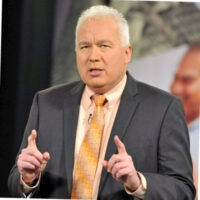





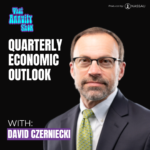
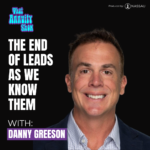
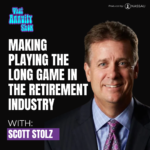



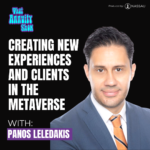

Leave a Reply